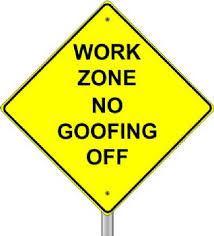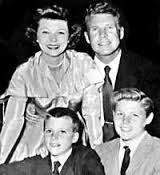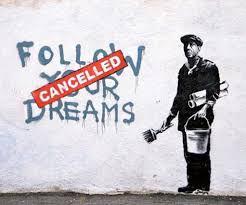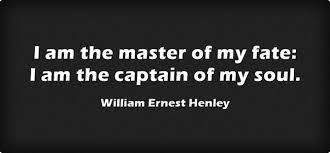 J. D. Vance is a young Yale law graduate, who rose from what he calls Kentucky hillbilly culture. Hillbilly Elegy is memoir-cum-sociology, aptly titled; an elegy expresses sorrow for human loss.
J. D. Vance is a young Yale law graduate, who rose from what he calls Kentucky hillbilly culture. Hillbilly Elegy is memoir-cum-sociology, aptly titled; an elegy expresses sorrow for human loss.
We’re not supposed to blame the poor for their poverty. Yet that’s just what Vance does, more or less. Though sometimes lyrical in his love for his people, he’s scathing in critiquing their social pathology.
That social pathology is often attributed to the rustbelt’s hollowing out of old time manufacturing jobs. Vance doesn’t buy it. True, the jobs picture is a big problem, but he sees it as greatly worsened by how his people have responded to it.
Some studies say less educated men work more than the educated classes. This too is rubbish, according to Vance.

The introduction discusses an early job Vance had in a tile warehouse. A fellow employee was “Bob,” nineteen, with a pregnant girlfriend, who was also hired, as a clerical worker. These were good jobs, with excellent health benefits. But the two were chronically late or absent, and Bob spent much of the workday in lengthy “bathroom breaks.” Both were eventually fired. Bob was pissed.
So was Vance. For him, this tale exemplifies the fecklessness of such losers, always blaming others for predicaments really of their own making.
I’ve previously reviewed Robert Putnam’s book, Our Kids, exploring the socioeconomic divide between better educated and less educated Americans, and the difficulties of moving from one milieu to the other. Vance’s memoir illustrates what Putnam was talking about.

“This was my world,” he writes, “a world of truly irrational behavior. We spend our way into the poor house . . . . [using] high-interest credit cards and payday loans . . . . Thrift is inimical to our being . . . . no investment to grow our wealth, no rainy-day fund . . . . Our homes are a chaotic mess. We scream and yell at each other . . . . At least one member of the family uses drugs . . . . we’ll hit and punch each other . . . . We don’t study as children, and we don’t make our kids study when we’re parents. Our kids perform poorly in school. We might get angry with them, but we never give them the tools — like peace and quiet at home — to succeed . . . . We choose not to work when we should be looking for jobs. Sometimes we’ll get a job but it won’t last. We’ll get fired for tardiness or for stealing . . . . or the smell of alcohol on our breath, or for taking five thirty-minute bathroom breaks per shift. We talk about the value of hard work but tell ourselves that the reason we’re not working is some perceived unfairness: Obama shut down the coal mines, or all the jobs went to the Chinese. These are the lies we tell ourselves . . . . ”

Vance would have fallen into the syndrome himself, but for “Mamaw” — his grandmother, who pretty much rescued him from life with his mother (her daughter). Mamaw was no paragon of virtue or refinement either, being a foul-mouthed product of the same culture — but of its earlier incarnation. A crucial difference: “I knew even as a child that there were two separate sets of mores and social pressures. My grandparents embodied one type: old-fashioned, quietly faithful, self-reliant, hardworking. My mother and, increasingly, the entire neighborhood, embodied another.” Mamaw gave Vance a stable, peaceful home, and helped him to see clearly a better path. He was able to shun all the kinds of dysfunction he writes about mainly because, with Mamaw, he was happy.
At least partially explaining all the social pathology is what Vance refers to as “learned helplessness.” (A concept developed by psychologist Martin Seligman.) People like “Bob” (of the tile job) act as they do because they don’t really see themselves as making choices. Instead it’s as though what happens to them is fate, beyond their control, so there is no point in making any kind of effort or resisting any inclination. Again, it’s blaming others, or the cosmos, for what befalls them. Overcoming this psychology, and developing a sense of personal agency, was a key element in Vance’s own rise to a better life.

We can yearn for some magic bullet to fix this; some government initiative perhaps. But Vance rejects that fantasy. Indeed, he sees past government efforts as part of the problem, talking about how hard-working people watch their tax dollars go to support, in these communities, an awful lot of others who don’t work, even buying things with food stamps those working folks can’t afford. This too undermines communitarian social solidarity; and Vance cites it as a key factor in his region’s political shift away from Democrats.

So this is a tale not of progress but of its opposite, regress. The humanist and optimist in me, looking at the broad global picture, over the centuries, sees a great human capability to progress, and great progress actually achieved. But it’s never locked in. We also have ample capability for squandering it and regressing.
So we come back to the question we started with. How much, in the end, is people’s own fault? It’s the old question of luck versus pluck. I did a lot right in my own life, and could say it was brains and character, yet realize that having those characteristics was just luck. Vance confronts the issue with particular regard to his mother. He recognizes all the demons to which his mother was exposed. “But at some point . . . you have to stop making excuses and take responsibility.” That’s what he did with his own life. His book is powerful testimony to how hard it can be. Yet it also makes clear that Vance is not unique. Not seeing ourselves as hapless victims is the best of being human. We do not succumb; we surmount.

